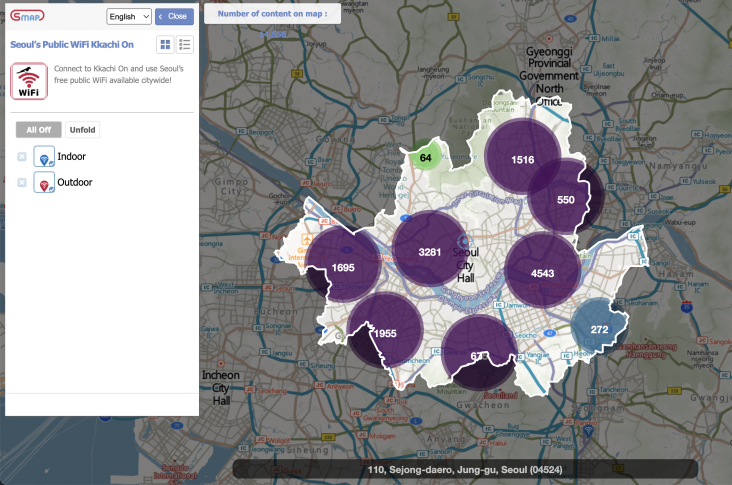
The financial burden of communications, especially on citizens with lower incomes, instead of decreasing, has only increased under monopolistic private telecom services. In South Korea, the law prevents the government from managing basic communication services, further shutting down avenues of support for citizens in both rural and urban areas.
Last year, APC member, Open Net Korea, hosted a public discussion forum and, in collaboration with APC network peer guifi.net in Catalonia, was successful in helping pass a law finally allowing municipal internet in South Korea.
We interviewed K. S. Park, director at Open Net Korea, to celebrate this positive collaboration and development, and to chart the history of this intervention. The interview has been edited for length and clarity.
What is the idea of municipal internet and why is it important?
Municipal internet is internet access service provided by municipal governments. Internet connectivity has been successfully implemented in areas where people’s desire to connect with the rest of the world has resulted in sufficient revenues to build out the network.
However, in rural areas where population density is too low (compared to the rest of the world ready to be tapped by townspeople) to justify the build-out, or in non-rural areas where the incumbent internet service providers (ISPs) formed an oligopoly selling low-quality internet at high prices, public entities such as municipal governments must step in to address the market failure.
Why were there laws in South Korea preventing municipal internet?
The telecom industry of South Korea began as state-owned enterprises. Beginning in 1995, the government began privatising the industry. This trend continued through the Asian foreign exchange crisis of 1997 when the financial rescue package offered by International Monetary Fund (IMF) included measures to “strengthen” the national economy, and one of them was privatisation of the telecom industry. So one can say Article 7 of the Telecommunication Enterprise Act explicitly banning state-owned or municipality-owned facility-based telecommunication enterprise was the anachronistic relic of the past, i.e., privatisation.
However, the main beneficiaries of this provision were three big ISP-mobile conglomerates, namely KT, SKT and LGU+, which now dominate 90% of wired internet and 100% of mobile. They did not provide free or affordable public Wi-Fi to the public, and the law blocked municipalities from covering the gap.
How did Open Net intervene in this issue and what was the nature of your collaboration with your fellow APC member, guifi.net? How did the collaboration happen?
In 2019, the progressive mayor of Seoul, Park Won-Soon, pursued a vision of free Wi-Fi, called S-Net, in all public places within the city of Seoul using the dedicated network that the municipality already owns. Article 7 of the Telecommunication Enterprise Act became a legal obstacle. Open Net issued press releases and wrote op-eds supporting Seoul’s initiative.
We also sought help from Carlos Rey-Moreno at APC when we met him at APrIGF Singapore 2022, and he introduced us to Ramon Roca at guifi.net for his focus on the European market, which could grab more attention from policymakers in South Korea.
What convinced the legislature to pass a law allowing municipal internet? What do you see as the next step in this positive development?
The examples of successful municipal internet in Europe and the US, presented by Roca and a speaker from the US at the congressional seminar on 4 April 2023, persuaded the ICT Ministry that it is not just rural areas that require public intervention.
Also, the ministry did acknowledge that the public Wi-Fi that the big telcos provided were of poor quality, and that seeing a slice of market that has not been filled by the big telcos, the municipalities could fill it with their own physical networks.
Since the amendment in June 2023, the city of Seoul has provided close to 15,000 free Wi-Fi access points throughout Seoul (see map). Hopefully, the availability of good quality public Wi-Fi will break the vicious circle of being disappointed over the lack or poor quality of free public Wi-Fi, purchasing expensive data plans, and making people the captive consumers of expensive data plans. Now the next steps are for other regions to follow the example of Seoul.
Gaurav Jain is Lead Editor at APC. He is an award-winning editor, writer and media entrepreneur who co-founded the pioneering feminist digital platform, The Ladies Finger, and the longform media house, Grist Media. He has also been a community building consultant, literary and investigative journalist, and research manager.